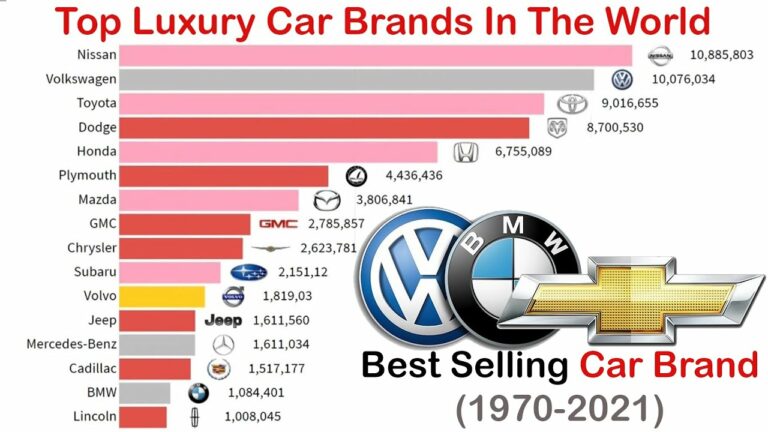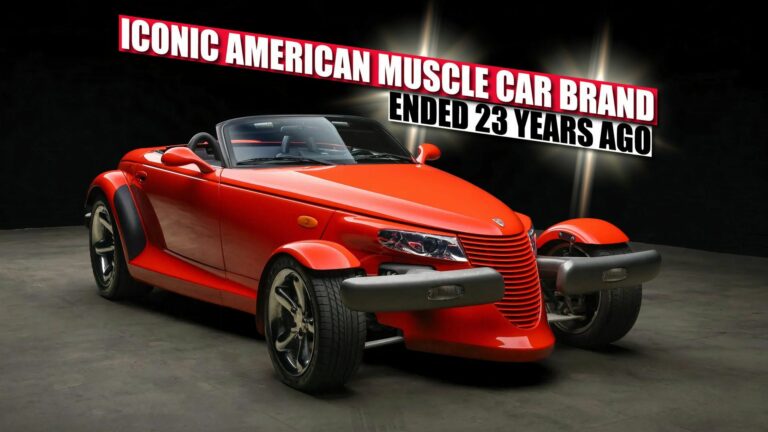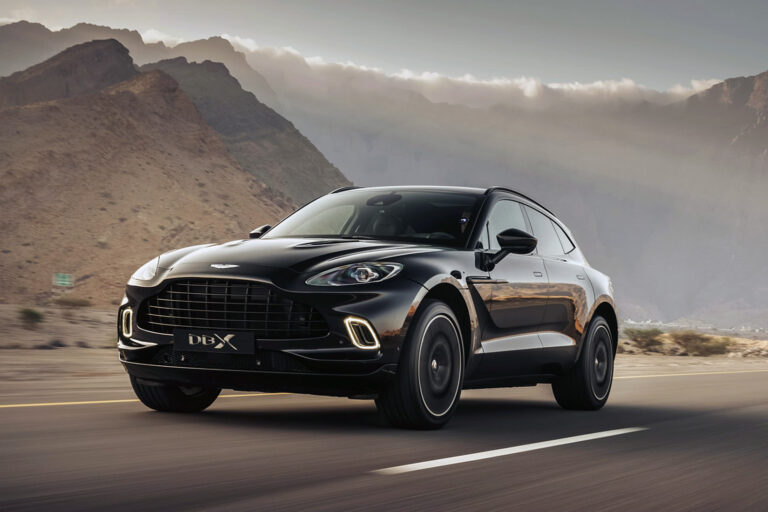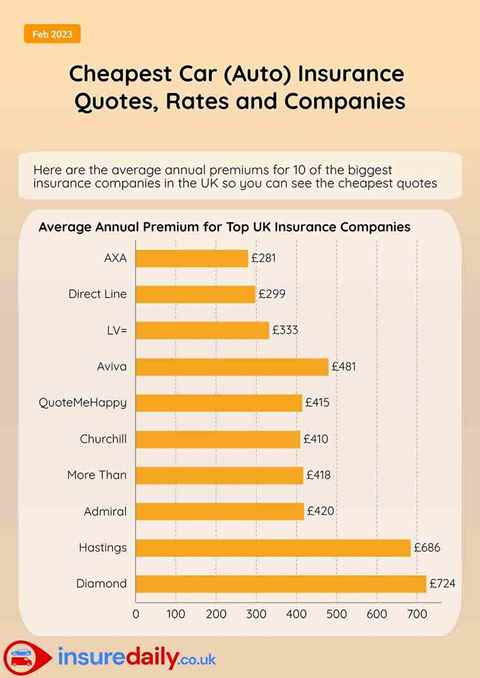Best Car Battery Brand: Your Ultimate Guide to Powering Your Ride
Best Car Battery Brand: Your Ultimate Guide to Powering Your Ride cars.truckstrend.com
The humble car battery, often an afterthought until it fails, is the unsung hero of your vehicle. It’s the jolt that brings your engine to life, the silent workhorse that powers your lights, radio, and all the intricate electronics that make modern driving comfortable and safe. But when it comes to replacing this vital component, the sheer number of options can be overwhelming. What defines the "best car battery brand"? Is it the longest warranty, the highest cold-cranking amps, or simply the one your mechanic recommends?
Choosing the right car battery brand isn’t just about avoiding a breakdown; it’s about ensuring reliable performance, optimal longevity, and peace of mind on every journey. This comprehensive guide will navigate the complex world of car batteries, helping you understand the key factors, explore the top brands, and ultimately make an informed decision that perfectly matches your vehicle and driving needs.
Best Car Battery Brand: Your Ultimate Guide to Powering Your Ride
Understanding the Heart of Your Car: The Battery Basics
Before diving into brands, it’s essential to grasp what a car battery does and the key specifications that differentiate them.
- Function: A car battery primarily provides the initial surge of electrical current needed to crank the engine and start the vehicle. Once the engine is running, the alternator takes over, recharging the battery and supplying power to the vehicle’s electrical systems.
- Key Specifications:
- Cold Cranking Amps (CCA): This is arguably the most critical rating. It measures the battery’s ability to start an engine in cold temperatures (0°F or -18°C). A higher CCA means more starting power, which is crucial in colder climates.
- Reserve Capacity (RC): RC measures how long (in minutes) a fully charged battery can continuously supply a minimum voltage (typically 10.5 volts) at a discharge rate of 25 amps, before dropping below the minimum voltage needed to operate the vehicle. It’s an indicator of how long your accessories will run if your alternator fails or if you accidentally leave your lights on.
- Voltage: Most car batteries are 12-volt systems, consisting of six 2-volt cells connected in series.
- Amp-Hours (Ah): While less common for starting batteries, Ah indicates the total amount of energy stored in the battery. It’s more prevalent in deep-cycle batteries.

- Types of Car Batteries:
- Flooded Lead-Acid (SLA): The most common and traditional type. They contain a liquid electrolyte solution and require occasional maintenance (checking water levels). They are generally the most affordable.
- Absorbent Glass Mat (AGM): A type of sealed lead-acid battery where the electrolyte is absorbed into fiberglass mats. AGMs are maintenance-free, spill-proof, more vibration-resistant, and offer higher CCAs and longer lifespans than flooded batteries. They are ideal for vehicles with start-stop technology or extensive electronic accessories.
- Gel Cell: Similar to AGM but use a gelled electrolyte. They are very resistant to vibration and extreme temperatures but typically have lower CCA ratings and can be more sensitive to overcharging. Less common for starting applications.
- Lithium-ion (LiFePO4): Emerging in high-performance and luxury vehicles. They are significantly lighter, offer superior performance, and have a longer lifespan but come with a much higher price tag.
Factors to Consider When Choosing a Car Battery
Selecting the "best" battery isn’t a one-size-fits-all scenario. Your choice should be tailored to your specific vehicle, driving habits, and environment.
- Vehicle Compatibility (Group Size): Batteries come in various "group sizes" (e.g., Group 24, 34, 35, 65, H6, H7). This refers to the battery’s physical dimensions, terminal type, and location. Always consult your vehicle’s owner’s manual or a reputable battery finder tool to determine the correct group size. Installing the wrong size can lead to fitment issues and safety hazards.
- Cold Cranking Amps (CCA) Requirement: Your car’s manufacturer specifies a minimum CCA rating. Never go below this recommendation, especially if you live in a cold climate. In colder temperatures, engine oil thickens, and the battery’s chemical reactions slow down, requiring more power to start.
- Reserve Capacity (RC): A higher RC is beneficial if you frequently use electronics while the engine is off (e.g., tailgating, long waits), or if your vehicle has a lot of power-hungry accessories.
- Climate: As mentioned, colder climates demand higher CCAs. Extreme heat can also shorten battery life, so a robust battery with good heat dissipation is advantageous.
- Driving Habits:
- Short Trips: Frequent short trips (less than 20-30 minutes) don’t allow the alternator enough time to fully recharge the battery, leading to premature wear. Consider a battery with better deep-cycle capabilities or use a trickle charger.
- Long Commutes: Ideal for battery health as they allow full recharging.
- Technology (Flooded vs. AGM):
- Flooded: Cost-effective, suitable for older vehicles or those without demanding electrical systems. Requires occasional maintenance.
- AGM: More expensive but offer superior performance, durability, and are maintenance-free. Ideal for modern vehicles with start-stop technology, extensive electronics, or those needing high vibration resistance.
- Warranty: A longer warranty generally indicates a manufacturer’s confidence in their product’s lifespan. Look for both the free replacement period and the pro-rata period.
- Budget: While you don’t want to overspend, remember that a battery is a critical component. Investing in a quality battery can save you headaches and towing fees down the line.
Top Car Battery Brands on the Market
While "best" is subjective, certain brands consistently deliver quality, performance, and reliability. Here are some of the leading contenders:
-
Optima Batteries:
- Reputation: Known for their distinctive Spiralcell Technology, which makes them highly resistant to vibration and extends life. They offer excellent starting power and are a favorite among off-roaders, hot rodders, and performance enthusiasts.
- Key Features: Extremely durable, leak-proof, maintenance-free, high CCA and RC.
- Series: RedTop (starting battery), YellowTop (deep-cycle and starting for high-accessory vehicles), BlueTop (marine and RV).
- Best For: Performance vehicles, off-roading, heavy-duty applications, vehicles with extensive electronics, and those seeking maximum durability.
-
Interstate Batteries:
- Reputation: A highly respected and widely available brand with a strong network of dealers. They offer a comprehensive range of batteries for various applications, known for reliability and good warranties.
- Key Features: Dependable performance, good cold-cranking power, excellent warranty coverage, wide selection.
- Series: Mega-Tron Plus (premium conventional), MT7 AGM (advanced AGM), MTZ (standard replacement).
- Best For: Everyday drivers seeking a reliable, long-lasting battery with excellent support, available for a vast range of vehicles.
-
DieHard (Advance Auto Parts/Sears):
- Reputation: An iconic brand with a long history, now primarily sold through Advance Auto Parts. DieHard batteries are known for their robust construction and solid performance across different tiers.
- Key Features: Reliable starting power, good lifespan, various tiers to suit different budgets and needs.
- Series: DieHard Gold (standard replacement), DieHard Platinum (AGM, premium performance), DieHard Platinum AGM (high-end, robust).
- Best For: General consumers looking for a trustworthy battery with good value and readily available at a major auto parts retailer.
-
ACDelco:
- Reputation: The official parts brand for General Motors vehicles, but their batteries are also excellent choices for non-GM cars. They are known for their OEM quality and reliability.
- Key Features: High-quality construction, good vibration resistance, reliable starting power, often a direct OEM fit for many vehicles.
- Series: Professional (standard replacement), Advantage (economy), AGM (premium).
- Best For: GM vehicle owners seeking an OEM-grade replacement, or any driver looking for a dependable, high-quality battery with a proven track record.
-
Bosch:
- Reputation: A global engineering and electronics company, Bosch produces high-quality car batteries known for their advanced technology and reliable performance, particularly in European vehicles.
- Key Features: Robust construction, excellent cold-starting power, often feature enhanced flooded battery (EFB) or AGM technology for modern vehicles.
- Series: S3, S4, S5 (conventional), S5 AGM, S6 AGM (premium).
- Best For: Owners of European vehicles (BMW, Mercedes, Audi, VW) who want an OEM-level replacement, or anyone seeking a technologically advanced and reliable battery.
-
EverStart (Walmart):
- Reputation: Walmart’s private-label battery brand, manufactured by companies like Johnson Controls (now Clarios). They offer a cost-effective solution with decent performance.
- Key Features: Affordable price point, widely available, decent warranty for the price.
- Series: Maxx (premium conventional), Value (basic), AGM (premium).
- Best For: Budget-conscious buyers or those needing a quick replacement who prioritize accessibility and affordability.
-
Kirkland Signature (Costco):
- Reputation: Costco’s private label, also manufactured by a major battery producer (often Clarios/Johnson Controls). Known for competitive pricing and a solid warranty.
- Key Features: Excellent value, good performance for the price, strong warranty (often better than EverStart).
- Series: Primarily standard flooded lead-acid, with some AGM options.
- Best For: Costco members looking for a reliable, well-priced battery with a good warranty.
Beyond the Brand: What Makes a Battery "Best" for You?
Ultimately, the "best" car battery brand is the one that best suits your specific needs.
- Prioritize Compatibility: Always start with your vehicle’s manual for the correct group size and CCA requirements.
- Assess Your Climate and Driving Habits: If you live in a cold region, prioritize higher CCAs. If you make short trips, consider an AGM or a battery with good deep-cycle capabilities.
- Consider Your Vehicle’s Technology: Modern cars with start-stop systems or extensive electronics almost always require an AGM battery to handle the increased electrical load.
- Balance Cost and Longevity: While a premium AGM battery might cost more upfront, its extended lifespan and superior performance often justify the investment, saving you money and hassle in the long run.
- Look at the Warranty: A strong warranty is a testament to the manufacturer’s confidence and provides peace of mind.
- Professional Advice: If in doubt, consult a trusted mechanic or a battery specialist. They can test your current battery and recommend the best replacement for your vehicle.
Maintenance Tips to Extend Your Battery’s Life
Even the best battery won’t last if neglected. Simple maintenance can significantly extend its lifespan.
- Keep Terminals Clean: Corrosion (white, powdery substance) on terminals can impede current flow. Clean them regularly with a wire brush and a mixture of baking soda and water.
- Check Water Levels (Flooded Batteries): For traditional flooded batteries, periodically check the electrolyte levels and top up with distilled water if needed. Never use tap water.
- Secure the Battery: Ensure the battery is securely mounted to prevent vibrations, which can damage internal components.
- Avoid Deep Discharges: Repeatedly draining your battery completely (e.g., by leaving lights on) severely shortens its life.
- Use a Trickle Charger: If your car sits for extended periods or you make frequent short trips, a smart trickle charger or battery maintainer can keep your battery fully charged and prevent sulfation.
- Limit Electronics Use When Engine is Off: Running your radio, lights, or charging devices when the engine isn’t running drains the battery without replenishment.
- Regularly Test Your Battery: Most auto parts stores offer free battery testing. This can help you identify a weakening battery before it leaves you stranded.
Common Battery Problems and Solutions
- Dead Battery: The most common issue. Can be caused by age, parasitic drain, or leaving lights on.
- Solution: Jump-start the car. If it repeatedly dies, it’s likely time for a replacement.
- Corrosion: Build-up around terminals.
- Solution: Clean with a wire brush and baking soda/water solution. Apply anti-corrosion grease.
- Sulfation: Lead sulfate crystals build up on battery plates, reducing capacity. Often due to undercharging or prolonged disuse.
- Solution: A desulfator charger can sometimes help, but often requires battery replacement.
- Parasitic Drain: Something in the car (e.g., faulty relay, aftermarket accessory) is drawing power when the car is off.
- Solution: Professional diagnosis is usually required to identify and fix the source of the drain.
Car Battery Brand – Estimated Price Range Table
Please note: Prices are estimates and can vary significantly based on battery group size, specific model/series, retailer, promotions, and geographical location. This table provides a general range for common automotive starting batteries.
| Brand | Typical Battery Type/Series | Estimated Price Range (USD) | Key Feature/Benefit | Typical Warranty (Years) |
|---|---|---|---|---|
| Optima | RedTop (Starting), YellowTop (Deep-Cycle) | $200 – $350+ | Extreme vibration resistance, high CCA, long life | 3 (Free Replacement) |
| Interstate | Mega-Tron Plus, MT7 AGM | $150 – $300+ | Reliable performance, wide availability, strong warranty | 2-5 (Free Replacement) |
| DieHard | Gold, Platinum AGM | $160 – $320+ | Established reputation, good power, various tiers | 3-5 (Free Replacement) |
| ACDelco | Professional, AGM | $140 – $280+ | OEM quality, reliable, good for GM vehicles | 2-4 (Free Replacement) |
| Bosch | S5, S5 AGM | $180 – $350+ | Advanced technology, high CCA, suited for European cars | 3-4 (Free Replacement) |
| EverStart (Walmart) | Maxx, AGM | $100 – $200+ | Affordable, widely available, decent value | 2-3 (Free Replacement) |
| Kirkland Signature (Costco) | Flooded Lead-Acid, AGM | $80 – $180+ | Excellent value, competitive pricing, good warranty | 3-4 (Free Replacement) |
Frequently Asked Questions (FAQ)
Q1: How often should I replace my car battery?
A1: On average, a car battery lasts 3-5 years. However, this can vary based on climate (extreme heat/cold shorten life), driving habits, and battery type. Regular testing can help determine its health.
Q2: Can I install a car battery myself?
A2: Yes, it’s possible for many vehicles, but requires caution. Always wear safety glasses and gloves, disconnect the negative terminal first, and ensure proper ventilation. If unsure, it’s best to have a professional install it.
Q3: What are CCA and RC, and why are they important?
A3: CCA (Cold Cranking Amps) measures the battery’s ability to start an engine in cold weather – crucial for reliability. RC (Reserve Capacity) indicates how long the battery can power essential accessories if your alternator fails – important for safety and convenience.
Q4: How do I know if my battery is dying?
A4: Common signs include slow engine cranking, dimming headlights when the engine is off, the "check engine" or battery light illuminating, or a bulging/corroded battery case.
Q5: Is a more expensive battery always better?
A5: Not necessarily, but higher-priced batteries often offer superior technology (like AGM), higher CCA/RC ratings, longer warranties, and better durability. While a budget option might suffice for some, investing in a quality battery often provides better long-term value and reliability.
Q6: What’s the main difference between AGM and traditional lead-acid batteries?
A6: AGM (Absorbent Glass Mat) batteries are sealed, maintenance-free, spill-proof, and more resistant to vibration and extreme temperatures. They handle deep discharges better and recharge faster. Traditional flooded lead-acid batteries are cheaper but require occasional maintenance and are more prone to damage from vibration or deep discharge. Modern vehicles, especially those with start-stop systems, typically require AGM.
Conclusion
Choosing the "best car battery brand" is a personalized decision, one that balances your vehicle’s specific requirements with your driving conditions and budget. While brands like Optima, Interstate, DieHard, ACDelco, and Bosch consistently stand out for their quality and reliability, the ultimate "best" battery is the one that fits your car, meets its power demands, and offers the performance and longevity you need.
By understanding the key specifications, considering your individual factors, and practicing good battery maintenance, you can ensure your vehicle stays powered up and ready for every journey, providing you with reliable starts and peace of mind on the road. Don’t wait for a dead battery to think about its replacement; be proactive and choose wisely.





